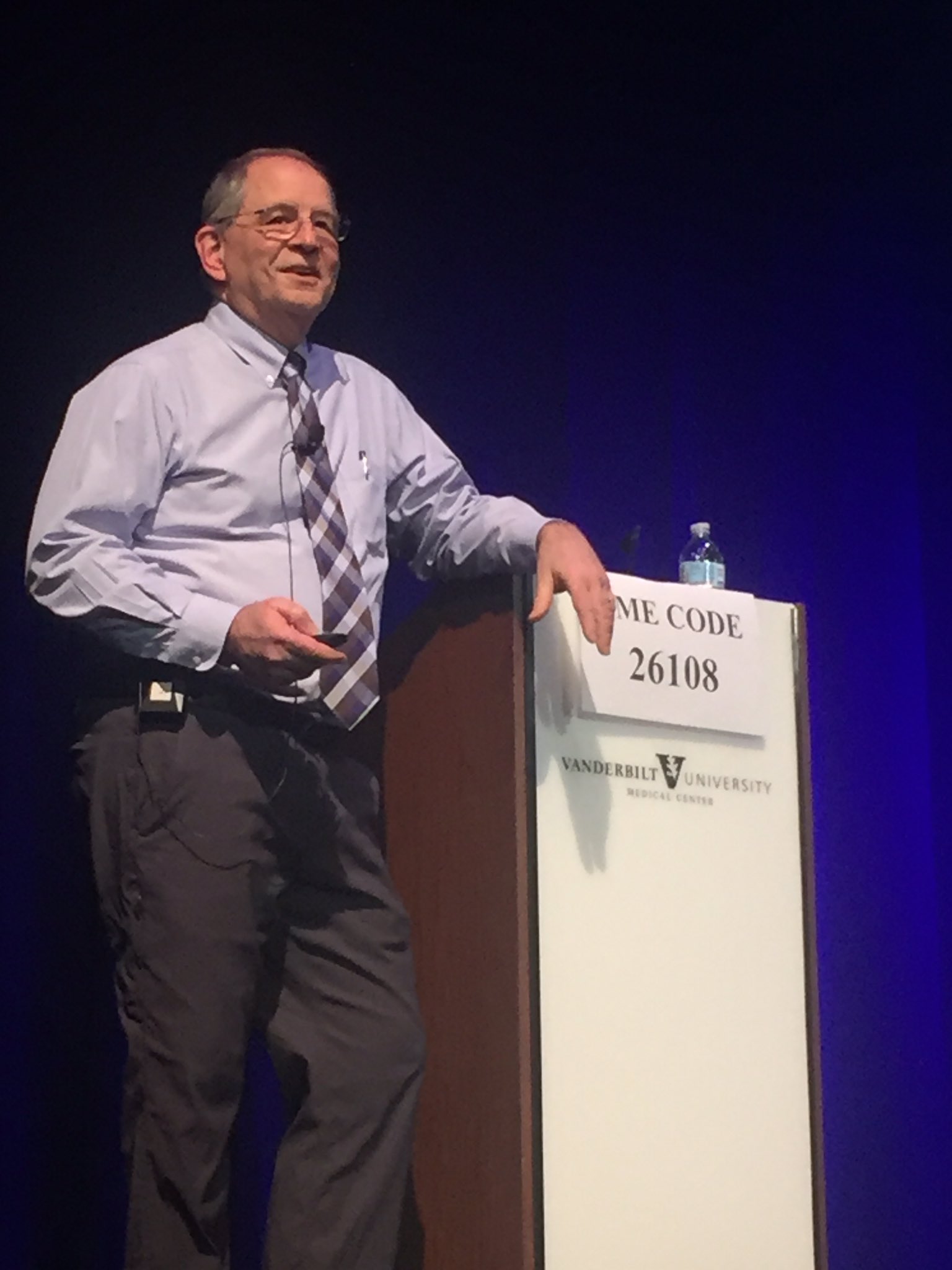Vanderbilt’s Own Dr. Mark Denison Delivers Grand Rounds on COVID-19 Antiviral Remdesivir
 COVID Medicine Grand Rounds Summary:
COVID Medicine Grand Rounds Summary:
Title: Learning from SARS-CoV-2 (COVID-19): Emergence, Disease Biology and Antivirals
Dr. Mark Denison, Director of Pediatric Infectious Diseases at Vanderbilt
3/5/2020
by Riley Bergman (M2)
On March 5th, 2020, as news about COVID-19 started to become widely disseminated in the media, the Vanderbilt community was lucky enough to attend a COVID-19 centered Medicine Grand Rounds talk given by expert in the field Dr. Mark Denison, Director of Pediatrics Infectious Diseases, and PI to Vanderbilt MSTP M4 Kevin Graepel. Dr. Denison helped develop remdesivir, a promising antiviral against coronavirus, and has spent the last 30+ years studying coronaviruses and antiviral drug development.
There are four known endemic human coronaviruses, which make up a large percentage of viral colds. They are known to most commonly cause upper respiratory tract infections while those who are immunocompromised also have lower respiratory tract infections, like pneumonia. The coronavirus SARS-Cov-2 causes the disease we are calling COVID-19, which is characterized by “flu-like” symptoms including fever, cough, and fatigue, as well as shortness of breath and diarrhea. While the majority of the population will experience mild symptoms, severe cases can progress to acute respiratory distress syndrome (ARDS), which is a life-threatening lung injury characterized by fluid entering the air sacs of the lung and preventing efficient gas exchange. Mortality with infection increases with age as well as in those who have pre-existing health conditions.
The incubation period for the virus ranges from 2-14 days, with an average of 5 days. It is still not known exactly how long the virus is shed after symptoms subside or at what point in infection viral transmission is highest. It is spread via respiratory droplets and is able to sit on surfaces for a few days. This makes regular disinfecting of surfaces and hands of utmost importance.
The Denison lab and collaborators have been working tirelessly to develop additional countermeasures for the virus including direct acting antivirals, monoclonal antibodies and host directed therapy. The barriers to this have included the timeline for development requiring months to years to develop and there is a large amount of difficulty in creating a vaccine that covers all coronavirus groups because the clades are quite different. Despite these barriers, Denison and colleagues worked to develop an antiviral called Remdesivir, which works by incorporating into the RNA of the virus and stopping the action of the RNA-dependent RNA polymerase, which is essential for creating new genomic material for production of new viruses. When this drug is given to mice early in Coronavirus infection, it decreases viral titers as well as mortality, while when it was given later in infection it still decreased viral titers but did not reverse lung disease or improve mortality. These data are what we have learned from mouse models and the effects of this drug are still being studied in clinical trials to determine whether Remdesivir will be effective in treating human SARS-Cov-2 infection, but we are hopeful that continued efforts will make large strides in treating coronaviruses.